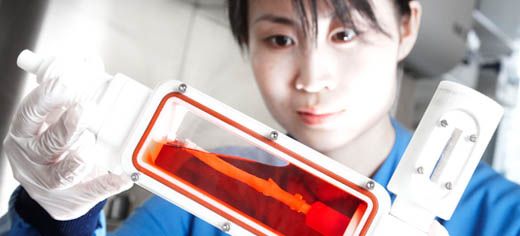
Researchers solve paradox of virus construction
A new study has solved a long-standing puzzle of how common viruses reproduce themselves during an infection, opening up new possibilities for treating a range of diseases from HIV to the common cold.

A new study has solved a long-standing puzzle of how common viruses reproduce themselves during an infection, opening up new possibilities for treating a range of diseases from HIV to the common cold.

Research by the University of Leeds has linked drinking alcohol during the first three months of pregnancy to a higher risk of having a premature or unexpectedly small baby.

Researchers at the University of Leeds are aiming to develop practical ways to help people suffering from painful osteoarthritis, following the establishment of a new experimental treatment centre.

University of Leeds scientists are exploring whether a simple injection could help shrink a brain tumour.

The Stratified Medicine Hub cosponsored a showing of The Enemy Within - a film depicting the last 50 years of the fight against cancer.

A new £3.2 million training centre aimed at keeping the UK at the cutting edge of regenerative medicine research will be based at the University of Leeds, the government announced today.

University of Leeds experts are backing a fundraising drive to raise £2 million for a world-class brain research centre in Yorkshire by 2015.

Scientists at the University of Leeds have developed a new technology that could form the basis of a simple blood test for Alzheimer's disease.

Researchers at the University of Leeds have shown that greater dietary fibre intake is associated with a lower risk of both cardiovascular disease and coronary heart disease.

A new gene mutation which will help doctors give a more accurate diagnosis of a type of brain and muscle disease in children has been discovered for the first time by University of Leeds experts.